Pop-up exhibit shines light on need for more Holocaust education in N.B.
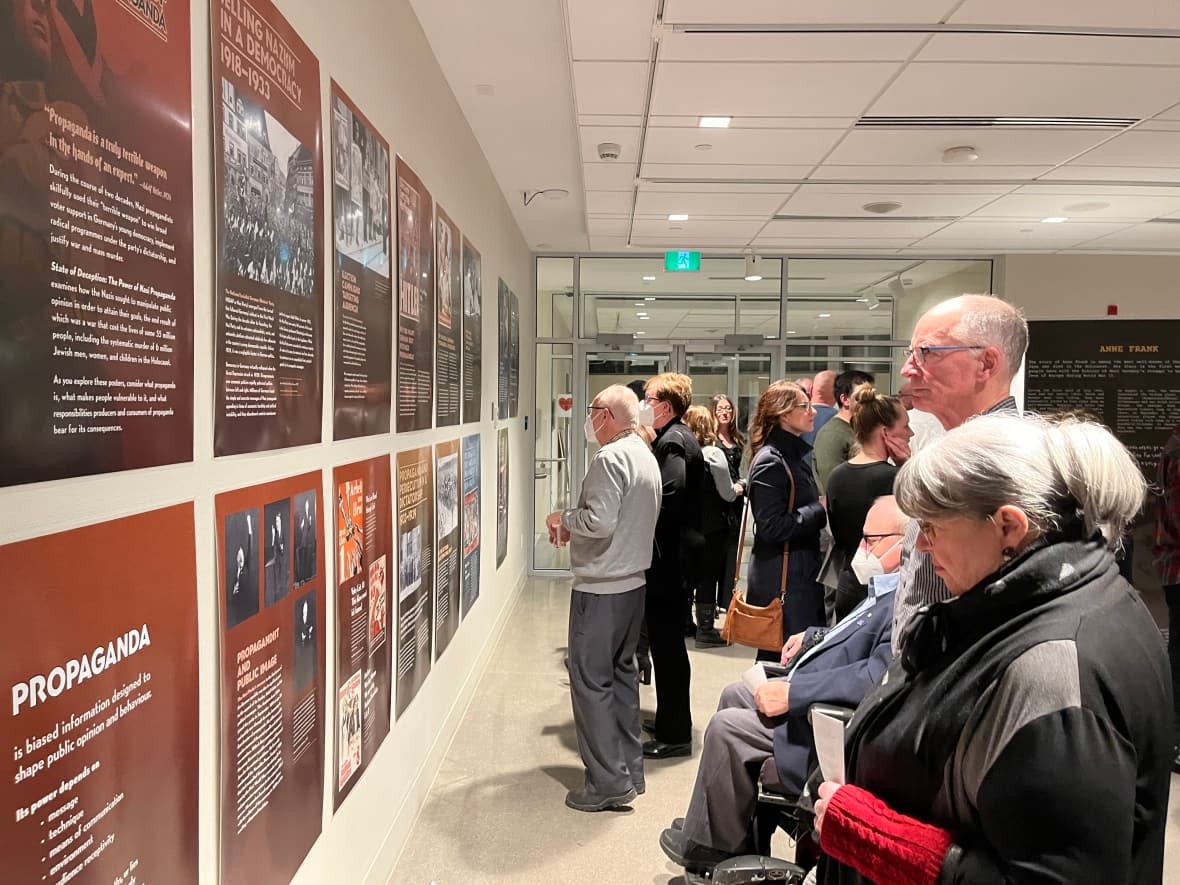
A prominent voice against antisemitism says Holocaust education in New Brunswick needs to improve — and she hopes her educational exhibit will help.
Jasmine Kranat created the exhibit last year to better educate young people about the Holocaust. The exhibit will be on display at the Beaverbrook Art Gallery until Sunday.
Last May, 200 Fredericton High School students attended the exhibit after its launch at the Sgoolai Israel Synagogue, and there were comments afterwards on reflection cards that underscored Kranat's belief that schools need to do more.
Students wrote that they hadn't known much about the Holocaust and wanted this history amplified in their education, she said.
"It was evident in the responses from the students that we can do more," she said at the exhibit's opening on Thursday evening.
Kranat collaborated on the exhibit with the synagogue's committee to combat antisemitism, provoked by the November 2021 protests in Fredericton against COVID-19 mandates during which some people compared the Holocaust to the mandates.
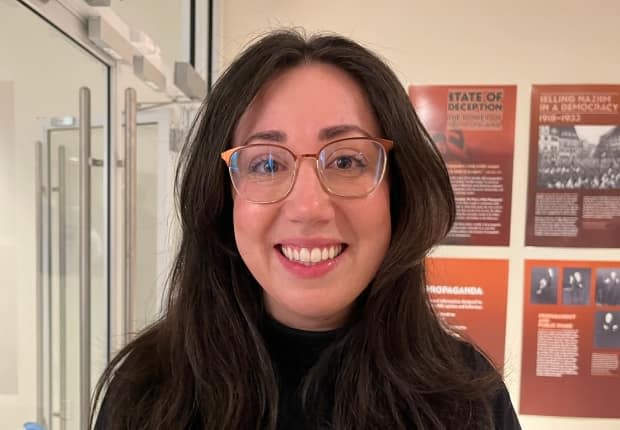
Kranat, whose great-grandmother was a Holocaust survivor, moved from England to New Brunswick in 2009. She said many of her peers didn't know what the Holocaust was, because it wasn't taught until late high school.
She said it should be taught to younger students and in courses other than history, such as English and sociology.
A Department of Education spokesperson, Morgan Bell, said in a written statement on Friday that the Holocaust is introduced in Grade 11 modern history classes but teachers can choose to teach the topic in other grades or courses.
She said the modern history Holocaust lesson can range anywhere from one or two class periods to a full week, depending on the teacher's choice.
Bell said the department plans to meet with Kranat to "discuss appropriate consultations and next steps."
Dominic Cardy, the former minister of education and now the Independent MLA for Fredericton West-Hanwell, agreed that there needs to be more education on the Holocaust in schools.
Before he resigned as education minister, he said he'd started working on a new civics program that included anti-racism and antisemitism training along with a focus on Holocaust education.
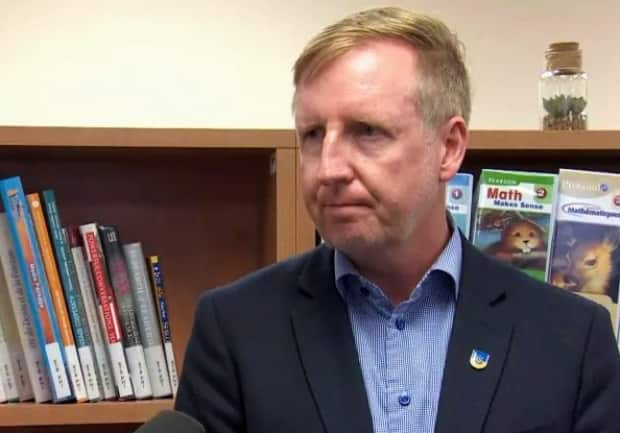
Cardy, who was at the opening of the exhibit on Thursday, said he hopes to see Education Minister Bill Hogan continue the creation of that program.
"We don't have that many Holocaust survivors left, so this is no longer a question of survivors telling their stories, but people who've heard and listened to their truths passing them on to the next generation," said Cardy.
"So the task for education and for educators becomes that much more critical to make sure that the story of the Holocaust is carried on into the rest of this century."
Education department spokesperson Bell said in her written statement that the "proposed civics program is planned to continue."
She also said a modernized curriculum will be published by the province later this year to follow an "evidence-based approach to Holocaust education," which includes "introducing the Holocaust in earlier grades, across subject areas, providing context for pre-war Jewish life and Jewish resistance, as well as clear learning expectations for anti-discrimination."
New Brunswick Green Party Leader David Coon said he was shocked to hear from Kranat and the rest of the antisemitism committee that the current school system needed help in the area of Holocaust education.
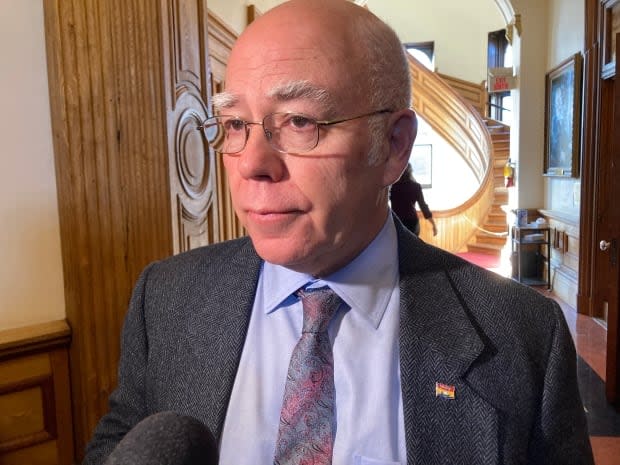
Coon, who is the Fredericton South MLA, said teachers and principals need to be well-versed in how to address incidents of antisemitism and hate in the classroom.
"Not enough is being done in that way," he said. "I've had parents reach out to me whose kids have been the subject of racism or antisemitism and they were not happy, understandably, with the way the school dealt with it."
Learning from survivors
Kranat's exhibit has evolved since it last appeared and now includes an artificial intelligence program, created in California, that allows visitors to ask questions to a Holocaust survivor who has since passed away, said Kranat. The AI program is based on the survivor's responses to more than 3,000 questions.
The rest of the exhibit includes information, personal accounts, photos and propaganda.
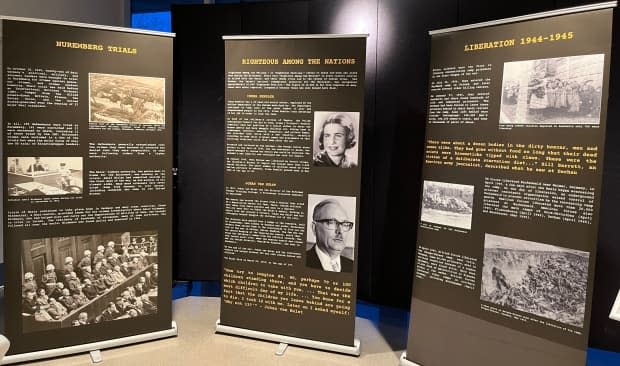
She said she hopes to see the exhibit become a permanent fixture in New Brunswick, along with more pop-ups, to educate students and the general public.
Israel Unger, a Holocaust survivor who attended the exhibit's opening, said it was encouraging to see so many people show up to learn about the Holocaust.
"Education is fundamental," said Unger. "This is the cure — is education."
Unger was born in a small town in southwestern Poland called Tarnów. He was hidden behind a false wall in the attic of a flour mill for two years.
He said it's important for people to keep learning about the Holocaust's lessons.
"The big lesson is, 'Look what happens when you allow hatred and promote hatred. Look what can happen,'" said Unger. "Have we learned the lesson? Unfortunately not. But that doesn't mean that we shouldn't keep trying."


